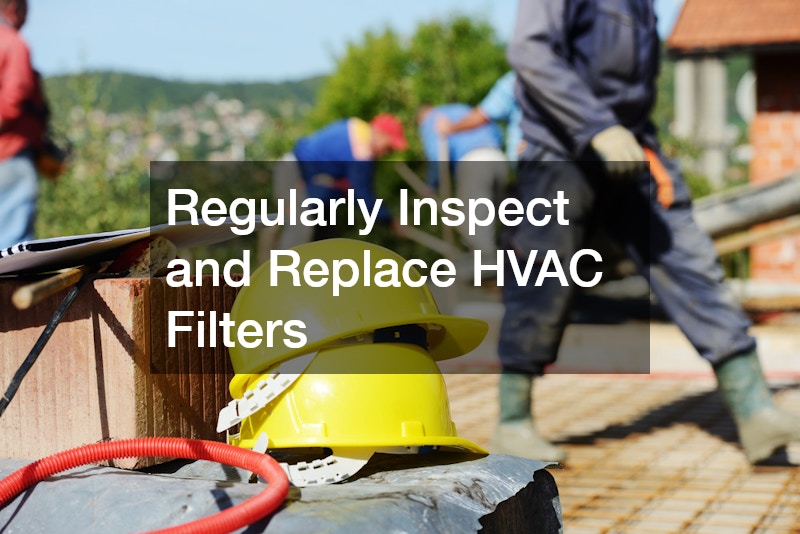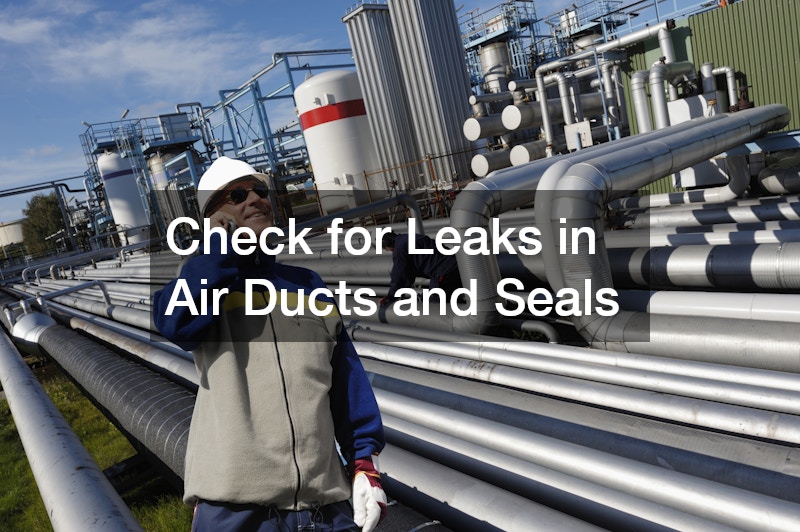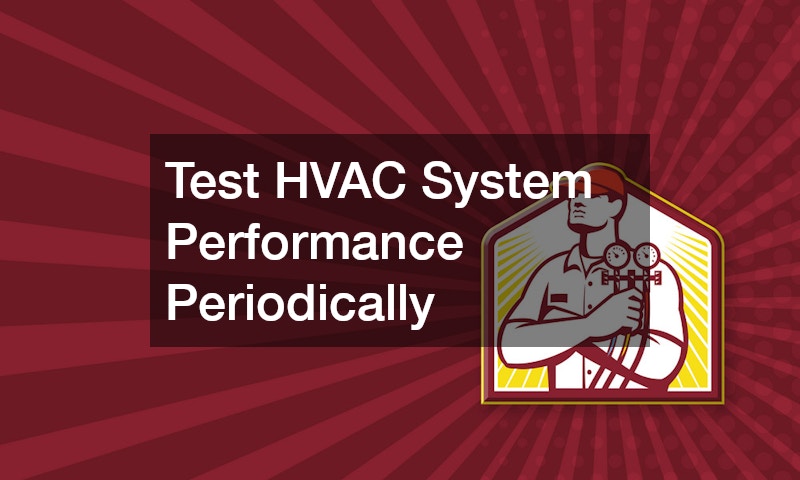
Standard Maintenance Tips For Your Homes HVAC System
Evaluating Your Home’s HVAC System
Maintaining your home’s HVAC system is essential for ensuring year-round comfort and energy efficiency. A well-maintained HVAC system not only provides consistent heating and cooling but also helps lower energy bills and extend the lifespan of your equipment. While professional servicing is crucial, homeowners can take several standard maintenance steps to keep their systems running smoothly between service appointments. These regular practices prevent minor issues from escalating into costly repairs, ensuring that your home remains a comfortable haven no matter the season. By understanding the basics of HVAC maintenance, you can safeguard your investment and improve indoor air quality for your household.
This guide highlights standard maintenance tips every homeowner should consider for their HVAC system, from simple filter replacements to professional servicing. If you suspect there to be an issue with your home’s HVAC system, contacting a professional is rarely a bad idea. Whether you’re aiming to enhance system efficiency or avoid unexpected breakdowns, these tips provide a roadmap for keeping your HVAC system in peak condition. With a little effort and the right knowledge, maintaining your system can be a seamless part of your home care routine.

Regularly Inspect and Replace HVAC Filters
One of the most important yet straightforward maintenance tasks for your HVAC system is regularly inspecting and replacing the air filters. Filters are critical for trapping dust, pollen, and other airborne particles, ensuring clean air circulates throughout your home. Over time, filters become clogged, which restricts airflow and forces your system to work harder. This increased strain can reduce energy efficiency and lead to higher utility bills. Checking your filters monthly and replacing them every one to three months is a standard maintenance practice that can significantly improve your HVAC system’s performance.
For a more specific approach, consulting an HVAC contractor can provide valuable insights into choosing the right filter for your system. For example, homes with pets or residents with allergies may benefit from HEPA filters that capture finer particles. An HVAC contractor can also inspect your system during routine visits to ensure proper filter installation and advise on the optimal replacement schedule for your home’s unique needs. Incorporating this maintenance step not only boosts efficiency but also improves indoor air quality, making it a vital part of any HVAC care plan.
Schedule Professional HVAC Maintenance Annually
While regular DIY maintenance is essential, scheduling professional HVAC maintenance annually is equally important. A professional technician can perform a thorough inspection, identify potential issues, and conduct deep cleaning tasks that are beyond the scope of routine homeowner care. Annual maintenance ensures that your system is running efficiently, reduces wear and tear on components, and helps prevent unexpected breakdowns. It’s a standard maintenance practice that can save you from costly repairs and prolong the life of your HVAC system.
For instance, professional heating repair services are crucial during these annual check-ups, especially before the winter season. A technician can inspect and tune up your furnace or heat pump, ensuring it’s ready to handle colder temperatures. They can identify problems such as worn-out parts or inefficient components that may compromise your system’s ability to heat your home effectively. By investing in professional maintenance, you can rest assured that your HVAC system is prepared to keep your home comfortable throughout the year while minimizing the risk of emergency repairs.

Clean and Maintain HVAC Ductwork
Maintaining clean ductwork is a crucial component of standard HVAC maintenance. Over time, dust, dirt, and debris can accumulate inside your duct system, reducing airflow and spreading contaminants throughout your home. Dirty ducts can strain your HVAC system, causing it to work harder and use more energy to deliver conditioned air. Regularly cleaning your ducts, or at least inspecting them, can help improve air quality, system efficiency, and overall comfort in your home. This practice is particularly important in homes with pets, high humidity levels, or residents who suffer from allergies.
In more specific situations, professional air conditioning service providers can assist with a thorough cleaning of your duct system, ensuring all buildup is removed effectively. These services often include sanitizing ducts to eliminate mold, bacteria, or lingering odors that may compromise your indoor air quality. Regular duct cleaning also prevents blockages that can lead to uneven cooling or heating in your home. By prioritizing clean ductwork as part of your standard maintenance routine, you can enhance both your HVAC system’s performance and your household’s health.
Monitor and Adjust Thermostat Settings
Your thermostat plays a vital role in regulating your HVAC system’s efficiency and ensuring a comfortable indoor environment. Monitoring and adjusting your thermostat settings regularly is a key aspect of standard maintenance. Programming your thermostat to align with your daily schedule can help reduce energy waste, as you can set the system to operate less when no one is home. Additionally, keeping your thermostat at a consistent, energy-efficient temperature can prevent excessive strain on your HVAC system, prolonging its lifespan and reducing utility costs.
In certain scenarios, homeowners might find that integrating smart thermostat technology, often installed by inground pool contractors or other specialized service providers, offers even greater control. Smart thermostats allow for remote monitoring and adjustment, providing real-time data on your HVAC system’s performance. They also offer features such as learning your temperature preferences and optimizing energy use accordingly. By keeping an eye on your thermostat settings and leveraging modern technology, you can ensure that your HVAC system operates efficiently and meets your comfort needs without overuse.

Check for Leaks in Air Ducts and Seals
Air duct leaks are a common but often overlooked issue that can significantly impact HVAC efficiency and indoor air quality. Leaks or poorly sealed ducts allow conditioned air to escape, reducing airflow to different areas of your home and causing your HVAC system to work harder to compensate. This not only increases energy costs but can also create uneven temperatures throughout your house. Regularly inspecting your ductwork for signs of leaks or loose seals is an essential part of standard maintenance to ensure optimal system performance.
For a more targeted approach, home elevation contractors are often experienced in identifying and addressing duct issues, especially during larger home improvement projects. They can perform thorough inspections and use advanced techniques to seal leaks effectively, ensuring that your HVAC system operates as intended. Additionally, sealing leaks can help prevent contaminants such as dust and allergens from entering the system, improving overall air quality. Addressing duct leaks promptly as part of your maintenance routine ensures that your HVAC system remains efficient and your home stays comfortable year-round.
Keep Outdoor HVAC Units Clear of Debris
Maintaining a clean and unobstructed outdoor HVAC unit is essential for optimal system performance. Outdoor units, such as condensers, are exposed to the elements and can easily accumulate dirt, leaves, and other debris. This buildup can block airflow, reduce efficiency, and strain the system as it works harder to cool or heat your home. Regularly inspecting and cleaning the area around your outdoor unit as part of your standard maintenance routine helps ensure that it operates smoothly and efficiently.
For a more thorough cleaning, consulting a plumbing contractor may be beneficial, especially if the unit requires professional attention to clear stubborn debris or check for water-related issues, such as drainage problems. They can also ensure that vegetation and other obstacles are kept at least two feet away from the unit, preventing interference with airflow. By keeping your outdoor unit clean and clear, you protect your HVAC system from unnecessary wear and ensure consistent performance throughout the year.\

Test HVAC System Performance Periodically
Periodically testing your HVAC system’s performance is a crucial step in standard maintenance. Running a performance test allows you to identify potential inefficiencies, such as slow cooling or heating, unusual noises, or uneven temperatures in your home. These tests help you catch small issues early before they escalate into costly repairs or cause system breakdowns. Monitoring system performance regularly ensures that your HVAC system operates as efficiently and effectively as possible.
In specific cases, a local remodeling contractor can assist in assessing your HVAC system during home upgrades or renovations. They can ensure that any changes to your home, such as new layouts or added rooms, don’t overburden the system. Additionally, remodeling contractors can recommend adjustments to your HVAC setup, such as resizing ducts or upgrading system components, to accommodate new demands. Testing your system periodically and seeking professional input when needed ensures that your HVAC remains a reliable part of your home.
Use Energy-Efficient HVAC Practices
Incorporating energy-efficient practices into your standard maintenance routine can significantly enhance the performance and longevity of your HVAC system. Simple measures like keeping doors and windows closed while the system is running, using ceiling fans to circulate air, and maintaining proper insulation all reduce the workload on your HVAC system. These practices not only conserve energy but also lower utility bills and reduce the environmental impact of your home’s heating and cooling.
For more advanced energy-saving strategies, consulting a local general contractor can be highly effective. Contractors can recommend upgrades such as installing energy-efficient windows, sealing air leaks, or adding insulation to improve your home’s overall efficiency. These improvements help your HVAC system maintain a comfortable temperature with less effort, reducing wear and tear over time. By adopting energy-efficient practices and seeking professional guidance for enhancements, you ensure that your HVAC system runs optimally while saving money and resources.
Inspect and Maintain HVAC System Insulation
Proper insulation is key to maintaining the efficiency of your HVAC system. Insulation in your home’s ductwork and surrounding areas ensures that conditioned air stays at the desired temperature as it travels through your system. Without adequate insulation, air can lose or gain heat, forcing your HVAC system to work harder to maintain comfort levels. Inspecting insulation as part of your standard maintenance routine helps prevent energy loss and keeps your home consistently comfortable.
In certain situations, a local electrical repair service can assist with insulation checks, particularly if electrical components near the HVAC system need inspection. Technicians can ensure that wiring and insulation around HVAC components are properly installed and maintained to prevent safety hazards or inefficiencies. Upgrading insulation where needed not only supports your HVAC system’s performance but also lowers energy consumption, contributing to long-term savings and a more sustainable home.
Address Unusual HVAC Noises or Odors Promptly
Strange noises or odors from your HVAC system are often early indicators of potential issues that need attention. Common sounds like banging, squealing, or rattling may suggest loose components or mechanical problems, while unusual odors could indicate mold, burnt wiring, or gas leaks. Addressing these signs promptly is an essential part of standard maintenance to avoid more extensive repairs or safety risks.
For more specific problems, consulting professionals with expertise in water heater systems can be helpful, especially if the issue stems from connected components such as the heating system or plumbing. For example, unusual sounds near the furnace or boiler might indicate sediment buildup in a water heater, which can disrupt overall HVAC performance. By addressing unusual noises or odors quickly, you ensure that small problems don’t escalate and that your HVAC system continues to operate safely and efficiently.
Maintaining Your Newly Repaired HVAC System.
Standard maintenance for your home’s HVAC system is essential for ensuring optimal performance, energy efficiency, and indoor comfort. By taking proactive steps such as replacing filters, cleaning ducts, and addressing issues like leaks or debris buildup, homeowners can prevent costly repairs and extend the lifespan of their HVAC system. Regular performance testing and the adoption of energy-efficient practices further contribute to the system’s reliability while reducing environmental impact and energy costs.
Additionally, consulting professionals like HVAC contractors, plumbers, or remodeling specialists for specific needs ensures that your system receives expert care when necessary. Whether it’s checking insulation, repairing a water heater, or upgrading components, professional input complements your routine maintenance efforts. By following these standard maintenance tips, you can ensure that your HVAC system remains a dependable part of your home, keeping it comfortable and efficient year-round.